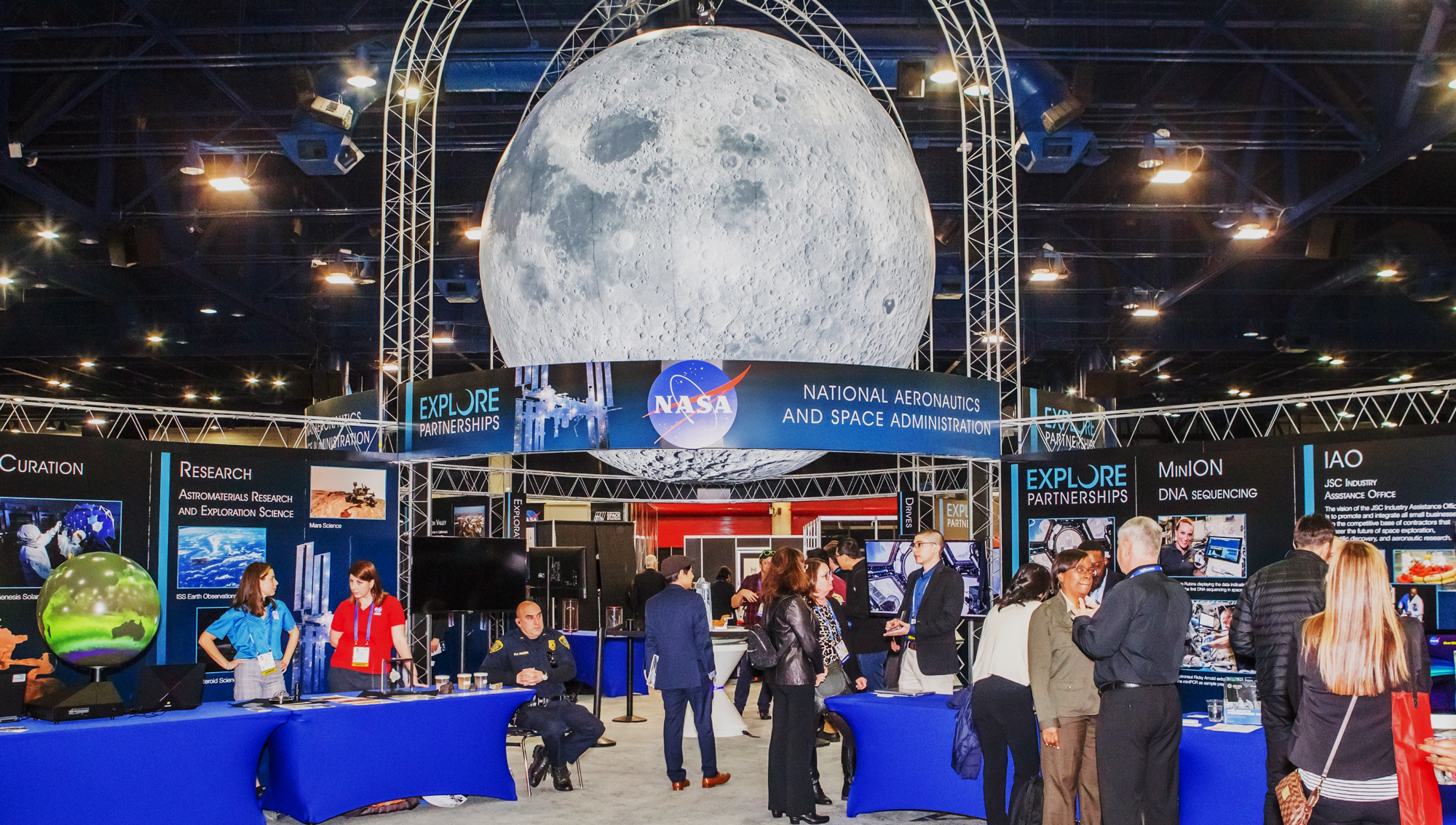SpaceCom a Nexus for the Next Generation Space Economy
Published Jun 13, 2019 by A.J. Mistretta
Realizing the full potential of space exploration and technology in the 21st Century requires unprecedented collaboration.
Now in its fifth year, SpaceCom is an international space commerce conference and exposition -- the only one of its kind where professionals from industry, aerospace, and governments convene to strategically explore opportunities in this age of accelerating commercial space development.
SpaceCom is hosted annually in Houston and is operating under a Space Act Agreement with NASA. In 2019, the Department of Commerce joined NASA in collaborating on the development of the show.
The international focus of the conference has top level space agency and international trade development executives with trade delegations from over 40 countries. The theme of SpaceCom 2019, slated for November 20-21, will be “Launching the one $1 Trillion Space Economy.”
SpaceCom is part of a Houston delegation attending the Paris Air Show this month. The delegation led by the Greater Houston Partnership will host a series of events to commemorate Houston's role in the Apollo 11 mission and discuss the region's aerospace future. Other participants include the Houston Spaceport, Rice Space Institute and Space Center Houston.
The Partnership discussed SpaceCom's origins and its path forward with Michael Heckman, senior vice president of Partnerships and Event Development for Houston First Corporation, which helps produce the event.
Talk a little about the circumstances that led to the creation of SpaceCom. How did it come about?
Houston has long-held a place in the history of space advancement, even before manned-space travel. As the next generation of space has been ushered in, all sectors---government, industry, finance, and education---needed a place to converge and share information. SpaceCom provides that opportunity for thought leaders, not only from the region but around the world, to meet in Houston every year as we advance towards a resilient, diversified, and global space economy.
How has the conference expanded through the years? (exhibitors, scope, attendees, whatever you want to share).
SpaceCom supports the strategic development of the emerging space market through collaborative information sharing; networking opportunities; and education on technology advancements, trends, financing, regulation, and more. SpaceCom has become the only conference and exposition where international professionals from private industry, aerospace, and government convene to strategically explore business opportunities in this age of accelerating commercial space development. In 2018, the conference hosted attendees and exhibitors from 37 countries.
Why is this a particularly advantageous time to be looking at innovations in space exploration?
The industry is predicted to grow rapidly with an expected net worth of, at minimum, one trillion dollars by 2040. This is due in large part to commercial space advancements such as manned space travel, but also includes terrestrial applications such as communication and observation satellites, managing space debris, creating and enforcing space law and treaties, new healthcare practices, and many other opportunities across industries. Additionally, there is already significant financial interest supporting these advancements.
As we approach the monumental anniversary of the Apollo 11 lunar landing this summer, how will this year’s SpaceCom be different?
The biggest change is a collaboration with the Department of Commerce’s office of Space Commerce and with the DOE and FAA. This has supplemental tailwinds from the White House, Congress, and industry that are now reflected in the conference program. Additionally, SpaceCom will continue to boast leading technical innovations used today like low earth orbit applications while also looking forward to future opportunities such as the mission to return to the moon in 5 years, going to Mars, low trajectory travel initiatives, and the continued development of commercial space travel.
What do you hope to gain by bringing SpaceCom to the Paris Air Show?
We want to ensure that attending and exhibiting companies are familiar with the educational and networking opportunities that SpaceCom provides as the leading commercial and space conference and expo in America. There is no other place where all 10 NASA centers, aerospace, and industry come together to support the globalization of space technology, commerce, and exploration.
The Partnership is also hosting a NASA Tour and Panel Lunch event as part of its Regions and Neigbhorhoods program on June 19. Learn more about that event and sign up today.
 The Houston Report
The Houston Report



















